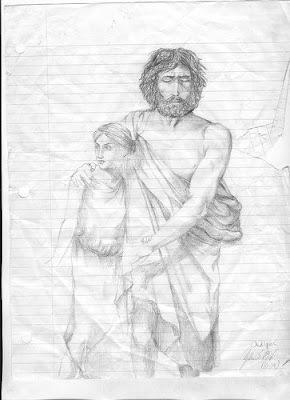
Well, what is so great about this play? Let me see... Although some might say that the play was boring and waste of money....I still saw the relevance of watching. Spending RM20 to watch an hour play was surely not a waste of time. INSPIRED by Carlos Saura’s award-winning film Tango passion brings together two of the most respected artistes in the performing arts — director Joe Hasham and choreographer Judimar Hernandez. With Datuk Faridah Merican as the executive producer, Hasham as director and Hernandez as choreographer, Passion stars Aris Kadir, Amy Len, Steve Goh, Loi Chin Yu, Elaine Pedley, Nell Ng, Thou Chun, Dalili Azahari and Joseph Gonzales. Unlike the film which pays homage to the tango dance form, Passion will be brought to life through rich, contemporary dance. However, the essence of the tango will not be lost. The audience can look forward to experience the sensuality and intrigue inherent in the tango but woven into a fresh, new set of movements by Hernandez. It goes beyond the simple love triangle. Under Hasham’s distinct direction, the narrative thread which ties together the whole performance becomes a powerful reflection of the human condition. Set to the music from the film, Hasham’s vision coupled with Hernandez’ exquisite choreography guarantees an intense performance that is both aesthetically appealing and deeply moving. I expected a play with dialogues and it turned out that the only dialogue in the play was “Life is so strange. I loved her for four years and she betrayed me. Life is so strange.” These are the only utterances that the play “Passion” offered. Then, you might wonder what is so great about watching this play. Well, in order to substitute the absence of dialogues, the actors had to convey their feelings, their thoughts-the passion through their facial expression. Compared to other plays that I have watched, this plays offers more of the music and lightings. This is because the music and the lighting increase in the amount when the tension in the play increases. The director brilliantly controls these two variables in order to attract and sustain the audiences’ attention. Thus, I believe we surely should watch more plays by different playwrights and directors in order to appreciate drama better.






